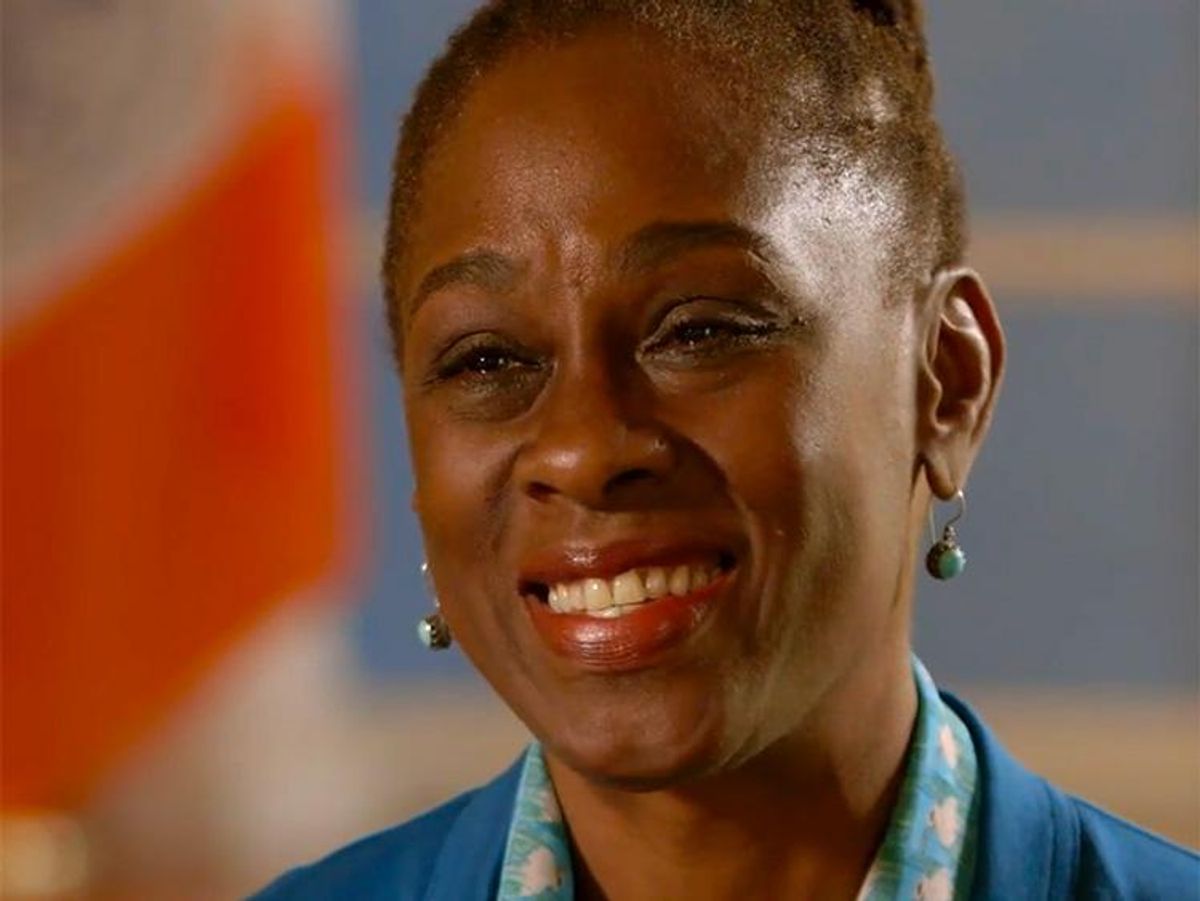It's not really anyone's business whether New York City Mayor Bill de Blasio's wife, Chirlane McCray, is bisexual or pansexual, but that doesn't mean people don't want to know.
In a video posted Thursday, Broadly journalist Diana Tourjee sat down with the first lady of New York City to discuss labels and their meanings, and reminisced about McCray's proud lesbian past, with Tourjee hinting to McCray that "the personal is political," a quote borrowed from the 1970s feminist movement of which McCray was a part.
But what does that phrase mean today, as individuals and celebrities alike resist against defining their sexual orientation? Kristen Stewart has been photographed with various girlfriends but eschews labels, saying, "In three or four years, there are going to be a whole lot more people who don't think it's necessary to figure out if you're gay or straight."
Increasing numbers of young people seem to agree with Stewart, resisting identifying with particular sexual orientations, seeing themselves as living representations of the Kinsey Scale. Recent studies have shown more than one-third of 13-to-20-year-olds identify somewhere on the bisexual spectrum, compared with 24 percent of millennials, age 21 to 34. Young people are also getting away from the gender binary. More than half of 13-to-20-year-olds surveyed said they knew someone who went by gender-neutral pronouns such as "they," "them," or "ze," compared with 43 percent of people age 28 to 34.
This rapidly approaching fluid future is as liberating to those who resist being defined purely by sexual orientation and gender identity as it is troubling to others who've fought for years to be recognized and treated equally as LGBT people.
"People do want to put you in a box," McCray told Tourjee. "They want to know, well, does this mean you're now bisexual? Or how did you change to be heterosexual? It's just, people ask you the most ridiculous questions."
However, in light of the shame keeping many LGBT teens closeted, and with routine discrimination LGBT people face around the world on a daily basis, is it really ridiculous to ask someone in a position of power to stand up for their presumed identity?
In her now-famous 1979 essay, "I Am a Lesbian," published in Essence, McCray discussed the difficulties she had coming to terms with her sexual orientation:
"Through all this I pretended that being known as a lesbian didn't bother me, that it was only a problem for other people. Yet, for me and for many women like me, being lesbian today means living in fear of discovery and in fear of not being liked. Nothing has brought me greater misery or stagnation than those fears."
While much has changed since 1979, with the enactment of marriage equality and recent affirmations of transgender rights on a federal level, those same fears McCray spoke of remain ever-present. In many states, LGBT people are still not protected from employment discrimination. In Pennsylvania, for example, two men may wed on a Wednesday, then be fired on a Thursday for being gay. Inclusive hate-crimes legislation was enacted precisely because LGBT people are often victims of bias crimes.
Given all this, is eschewing definition a privilege, or is it a right we should all hope to enjoy?
"I believe there is a fluidity that we are only just now growing to be more accepting of and aware of," McCray said, "because people do like to put people in boxes. ... I am just living my life."
Watch the interview below.


















































































Viral post saying Republicans 'have two daddies now' has MAGA hot and bothered